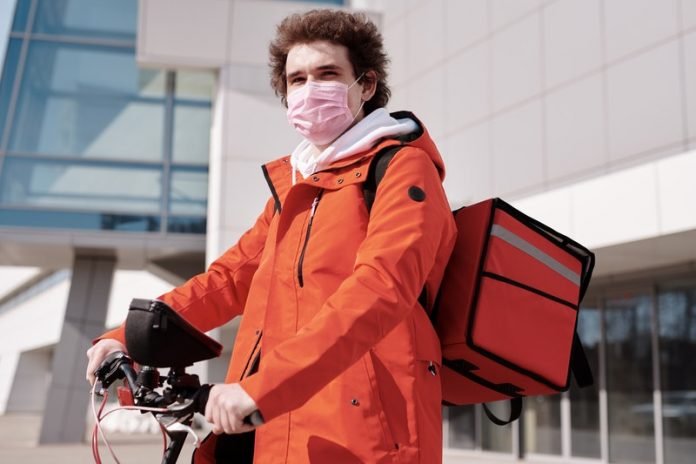
With thousands of scientists around the world racing to develop a vaccine for COVID-19, policymakers may need to decide who is at the front of the vaccination queue if initial supplies are limited.
Such decisions loom closer as drug giant Pfizer announces a vaccine that is 90% effective in people not previously infected with the virus.
In a new study, researchers developed a theoretical model for a new vaccination strategy that would have the biggest impact.
They suggested suppressing the spread of the coronavirus by identifying locations visited by people who are most likely to become so-called superspreaders and vaccinating them.
The research was conducted by a team at Macquarie University and elsewhere in Australia.
In the study, the team used location data for the movements of 600,000 people in Shanghai and Beijing who were on a messaging app called Momo.
They analyzed a staggering 56 million location visits in just 71 days.
The results showed that focusing on the locations where a potential superspreader visit and vaccinating all direct and indirect contacts in the cluster at those locations is the most effective method.
This approach would be as good as vaccinating identified superspreaders based on an accurate contact list, and significantly better than random vaccinations.
A superspreader is someone who transmits an infectious disease to an unexpectedly large number of other people.
The team says that to be effective (and realistic), it’s not about who exactly a superspreader has been in contact with 24×7 but where they’ve been that should be the focus of vaccination.
Past research has shown for privacy reasons, people often won’t reveal all their contacts or they forget all the people who they’ve met—so it is unreliable.
If this vaccine strategy is to be put into practice once a COVID-19 vaccine is ready, the team emphasizes the importance for public locations such as restaurants, cafes, clubs, shops, sporting and entertainment facilities to generate an accurate list of patrons so that they could be traced and vaccinated.
One author of the study is Professor Bernard Mans of Macquarie’s Department of Computing.
The study is published in PLOS ONE.
Copyright © 2020 Knowridge Science Report. All rights reserved.



